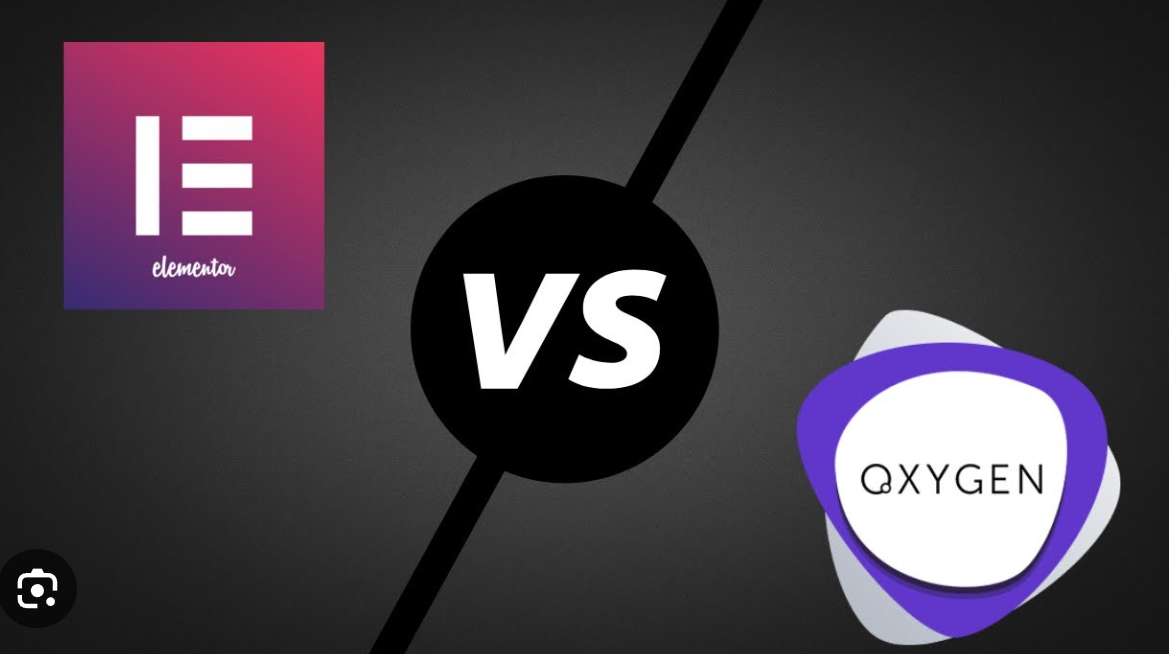Today, I want to talk to you about using visual builders in WordPress websites. Specifically, I want to compare and contrast Elementor and Oxygen builder towards Gutenberg, two of the most popular visual builders in the market.
Elementor has been a go-to visual builder for WordPress for many years, and it has many useful features that have helped many website developers create stunning websites which are easy for the client to edit and expand in terms of content. However, over time, some issues have arisen, such as slower page load times, bloated code, and difficulty in customizing layouts.
Enter Oxygen builder. Oxygen builder is a relatively new visual builder on the scene, but it has already made waves in the industry. Oxygen addresses many of the issues that Elementor faced, and it provides a more streamlined and efficient solution for building WordPress websites.
One of the most significant issues that Oxygen has addressed is page load times. Oxygen generates less bloated code and only loads what’s necessary, resulting in faster page load times for your clients. Additionally, Oxygen is entirely customizable, making it easy to create unique and personalized layouts.
Another significant advantage of Oxygen is that it provides more control over how your website looks and performs. With Elementor, you are limited to the pre-designed templates, whereas Oxygen allows you to customize every aspect of your website, resulting in a more unique and personalized website for your clients.
To be clear, for developers custom made theme, and custom templates using Gutenberg are always the best solution, since gutenberg renders fast, allowing fast access and performance. But for individuals who update often, and want to take over the maintenance in terms of content on their own website, the builders come into play.
Elementor and Oxygen are considered better than Gutenberg for several reasons, and there are several statistics available that verify this claim.
First, while Gutenberg is a useful tool for creating simple WordPress websites, it does not provide the same level of customization and flexibility as Elementor and Oxygen. With Gutenberg, you are limited to a specific set of blocks, and it can be challenging to customize your website further as a regular user. In contrast, Elementor and Oxygen provide complete control over your website’s design, columns, rows and inner sections. Thus, you do not need always to hire a developer to make additional row into your page.
Finally, Elementor and Oxygen have a larger user base and a more extensive collection of third-party plugins and templates. With more users and more plugins available, you have access to a broader range of resources that can help you build better websites faster.
Here are some statistics that verify the benefits of Elementor and Oxygen over Gutenberg:
- According to a recent survey conducted by CodeinWP, 35% of WordPress users use a visual builder such as Elementor, while only 22% use Gutenberg.
- A survey conducted by W3Techs showed that Elementor is the most widely used WordPress plugin, with a usage rate of 5.5%, while Gutenberg has a usage rate of only 1.6%.
- According to BuiltWith, there are over 5 million websites using Elementor, while only 2.2 million websites are using Gutenberg.
When deciding between Gutenberg and Elementor, your choice will depend on your priorities. If you’re on a tight budget, Gutenberg is a great option since it’s completely free. However, if you’re looking for a wide range of advanced features and tools, Elementor is the way to go.
Elementor stands out as a better choice because it offers ultimate creative freedom and flexibility in creating and designing your website. With Elementor, there are no limits to what you can achieve in terms of design and functionality. - In summary, Elementor and Oxygen are considered better than Gutenberg due to their increased customization for the ordinary user, and are good for small websites, content based and will less of functionality. These benefits are supported by various statistics and studies, making them a reliable and efficient choice for building WordPress websites.
But for complex websites, avoiding WordPress all together is better in my opinion, since seeing it from its origin, it was a blog platform only that evolved on what is today.
Featured image taken here.

Get started
You should be a part of a contest for one of the best blogs on the net.
I am going to highly recommend this blog!